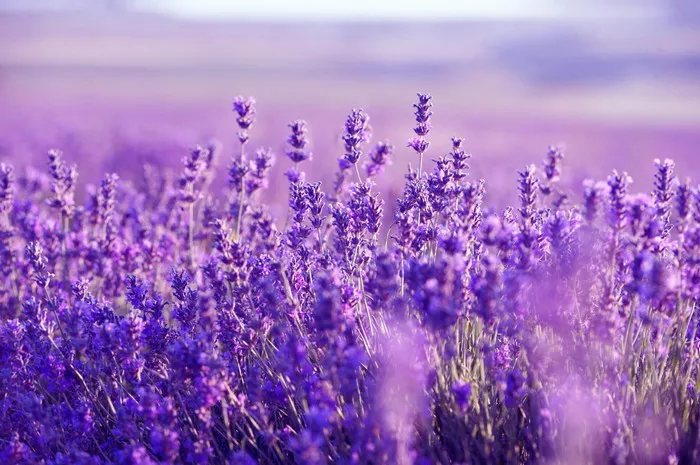Snails can wreak havoc on gardens, devouring delicate plants and leaving behind a trail of destruction. While there are various methods to control snail populations, including chemical pesticides and physical barriers, many gardeners prefer natural solutions that are safe for both plants and the environment. One such solution is to strategically plant flowers that snails dislike. In this article, we will explore some of the flowers that have been known to repel snails, providing gardeners with an effective and eco-friendly way to protect their plants.
Understanding Snail Behavior
Before delving into which flowers repel snails, it’s essential to understand why certain plants deter these slimy invaders. Snails are sensitive to certain scents and textures, which can influence their feeding behavior. By planting flowers that snails find unappealing, gardeners can create a natural barrier that discourages snails from venturing into their gardens.
Flowers That Snails Hate
1. Lavender (Lavandula spp.): Known for its fragrant scent and beautiful purple blooms, lavender is a popular choice among gardeners looking to repel snails. The strong aroma of lavender is believed to deter snails, making it an excellent addition to flower beds and borders. Additionally, lavender’s fuzzy leaves can be off-putting to snails, further discouraging them from feeding on nearby plants.
2. Geraniums (Pelargonium spp.): Geraniums are another flower that snails tend to avoid. These colorful blooms not only add visual interest to the garden but also emit a scent that snails find unpleasant. Geraniums are relatively easy to grow and come in a variety of colors, making them a versatile option for snail control.
3. Marigolds (Tagetes spp.): Marigolds are well-known for their ability to repel pests, including snails. These cheerful flowers produce a strong scent that is unappealing to snails, helping to protect nearby plants from their hungry appetites. Marigolds also contain compounds that are toxic to certain pests, further enhancing their effectiveness as a natural deterrent.
4. Foxgloves (Digitalis spp.): Foxgloves are tall, elegant flowers that can add height and drama to the garden while also repelling snails. The tubular shape of foxglove flowers makes them difficult for snails to access, reducing the risk of damage to nearby plants. Additionally, foxgloves contain toxic compounds called cardiac glycosides, which can deter snails and other pests.
5. Rosemary (Rosmarinus officinalis): While not typically thought of as a flower, rosemary is a fragrant herb that can help repel snails. Its strong aroma is unpleasant to snails, making it an effective natural deterrent. Rosemary is also known for its culinary uses, making it a practical and attractive addition to the garden.
6. Nasturtiums (Tropaeolum majus): Nasturtiums are colorful, trailing flowers that snails tend to avoid. These vibrant blooms produce a peppery scent that can deter snails, making them an excellent choice for borders and containers. Nasturtiums are also edible and can be used to add a spicy kick to salads and other dishes.
7. Alliums (Allium spp.): Alliums, such as garlic, onions, and chives, are known for their pungent aroma and strong flavor. These members of the onion family can help repel snails when planted among susceptible plants. Alliums also have the added benefit of deterring other pests, making them a valuable addition to any garden.
Implementing Natural Snail Control:
Incorporating snail-repellent flowers into your garden can help protect your plants from these voracious pests without the need for harmful chemicals. Here are some tips for effectively implementing natural snail control methods:
1. Strategic Planting: Plant snail-repellent flowers strategically throughout your garden, focusing on areas where snail damage is most prevalent. Consider placing these flowers near vulnerable plants to create a natural barrier against snails.
2. Companion Planting: Take advantage of companion planting techniques by intermingling snail-repellent flowers with susceptible plants. This can help mask the scent of attractive plants and confuse snails, reducing the likelihood of infestation.
3. Regular Maintenance: Keep your garden tidy by removing debris and clutter that can provide hiding spots for snails. Inspect plants regularly for signs of snail damage and promptly remove any snails you encounter.
4. Natural Barriers: In addition to planting snail-repellent flowers, consider using natural barriers such as crushed eggshells, copper tape, or diatomaceous earth to deter snails from accessing vulnerable plants.
5. Encourage Natural Predators: Attract natural predators of snails, such as birds, frogs, and predatory insects, to help keep snail populations in check. Providing habitat and food sources for these beneficial creatures can help create a balanced ecosystem in your garden.
Conclusion
In conclusion, planting flowers that snails hate can be an effective and eco-friendly way to protect your garden from these destructive pests. By incorporating snail-repellent flowers such as lavender, geraniums, marigolds, and others into your garden design, you can create a natural barrier that discourages snails from feeding on your plants. Implementing natural snail control methods not only helps preserve the health and beauty of your garden but also contributes to a more sustainable gardening approach. So why not add some of these snail-repellent flowers to your garden today and enjoy a pest-free oasis of beauty and tranquility?


